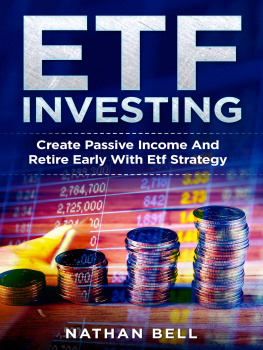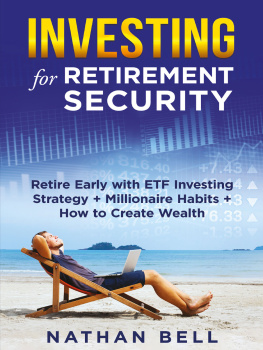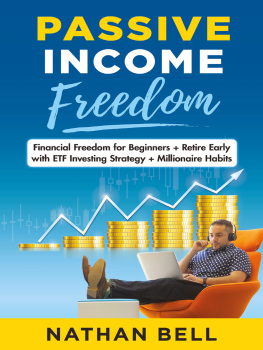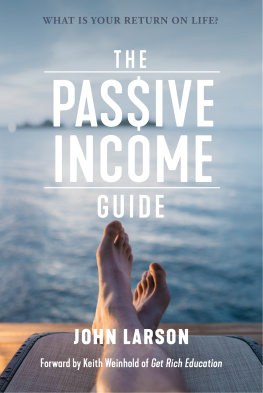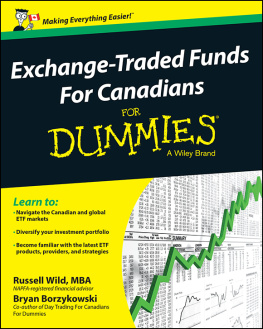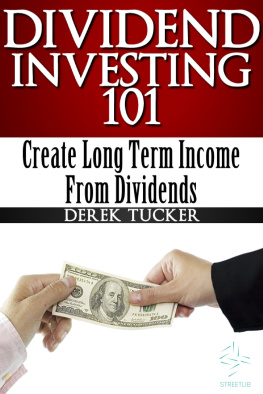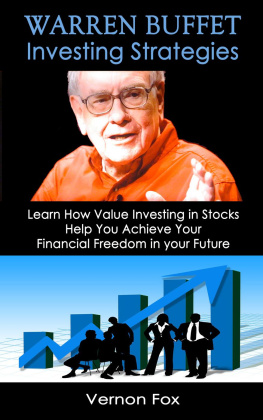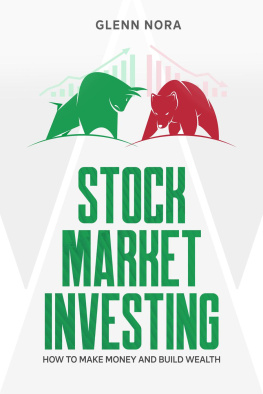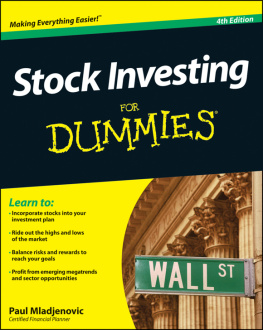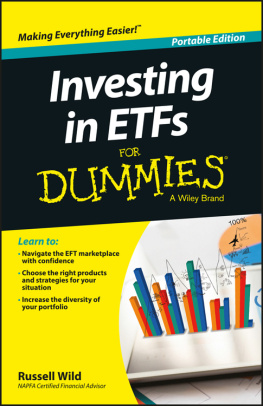ETF INVESTING
Create Passive Income And Retire Early With EtfStrategy
Nathan Bell
Copyright
All rights reserved
This book is targeted towards offering essential details about the subject covered.
The publication is being provided with the thought that the publisher is not mandated to render an accounting or other qualified services. If recommendations are needed, professional or legal, a practiced person in the profession ought to be engaged.
In no way is it legal to recreate, duplicate, or transfer any part of this document in either electronic means or printed format. Copying of this publication is strictly prohibited, or storage of this document is not allowed unless with written authorization from the publisher. All rights reserved.
The details supplied herein is specified, to be honest, and constant. Because any liability, in regards to inattention or otherwise, by any usage or abuse of any directions, processes, or policies confined within, is the sole and utter obligation of the recipient reader. Under no circumstances will any form of legal duty or blame be held against the publisher for any reparation, damages, or financial loss due to the information herein, either directly or indirectly. The author owns all copyrights not held by the publisher.
The information herein is provided for educational purposes exclusively and is universal. The presentation of the data is without contractual agreement or any kind of warranty assurance.
All trademarks inside this book are for clarifying purposes only and possessed by the owners themselves, not allied with this document.
Disclaimer
All erudition supplied in this book is specified for educational and academic purposes only. The author is not in any way in charge of any outcomes that emerge from utilizing this book. We made constructive efforts to render information that is both precise and effective; however, the author is not to be held answerable for the accuracy or use/misuse of this information.
Foreword
I will like to thank you for taking the very first step of trusting me and deciding to purchase/read this life-transforming book. Thanks for investing your time and resources on this product.
I can assure you of precise outcomes if you will diligently follow the specific blueprint I lay bare in the information handbook you are currently checking out.
It has transformed lives, and I firmly believe it will equally change your own life too.
All the information I provided in this Do It Yourself piece is easy to absorb and practice.
INTRODUCTION
Lookout in the skies! It's a bird! It's a plane!
No, it's Exchange-Traded Funds!
Exchange-traded funds are flying high. Much better recognized by the word ETFs, every week, new funds are introduced on Wall Street exchanges and land in the portfolios of financiers throughout the country.
While the buzz surrounding an ETF launch might not contrast to the glitz of an action-packed Superman follow up, some promoters of these investment lorries make it look as if their item might jump high structures in a solitary bound. A couple of ETF business has also attempted to empower their funds with superpower-sounding names such as PowerShares, WisdomTree, ProFunds, and shares.
Are PowerShares powerful?
Are WisdomTree funds a sensible financial investment selection?
Do ProFunds like pros?
Well, we will find out. What we know is that ETFs are an essential advancement in the investment market that may help you achieve monetary success. Because of that, astute financiers are finding out all they can talk about them. The ETF Book offers you a broad and deep understanding of this innovative investment structure and supplies the tools required to be an extra active investor.
ETFs have many benefits and a couple of drawbacks over conventional open-end shared funds. The advantages vary from reduced financial investment costs to enhanced trading adaptability. The negative aspects consist of a payment cost on each ETF
profession and the tedious task of ironing out all the market information and jargon (simplified by this book).
ETFs are a vital step in a financial investment revolution that started in 1924 with the first open-end shared fund giving. Since that time, there have been many adjustments in the pooled fund industry watched closely by a growing regulative environment.
At their core, ETFs are a straightforward idea. They represent a basket of safeties that you can sell or get
over a stock market. Under the hood, ETFs have a more sophisticated operating structure that needs a little more study to identify, and that makes investment evaluation and choice extra challenging than conventional with open-end collective funds. Whether ETFs will help you in a profile depends on your dedication to coming and understanding this product to an unbiased assessment of the benefits and drawbacks.
The one objection that I have concerning the ETF
market is the misguided right of superiority that a few ETF firms are saying. Without mentioning names, some business is trying to send out a message to financiers that their ETFs, based on intricate techniques, will create significantly higher returns than typical index funds, which adhere to long-established benchmark indexes. Also, a couple of e-newsletter writers are urging their visitors to sell all their open-end collective funds and acquire just ETFs because they will provide better returns. Both insurance claims are unjustified.
Cases of higher returns from ETFs over standard open-end mutual funds are blatantly exaggerated. There are some savings in price that can happen over open- finish funds, yet those savings are not significant enough to
make a considerable distinction in returns. Avoiding any kind of cost differential is not a reason to expect a basket of stocks to accomplish a higher performance in an ETF framework than they would yield in a standard open-end shared fund framework.
Some ETF business claims they make use of premium indexing methods. That is hugely debatable. There are many means to design the indexes that ETFs comply with, yet no exceptional technique can ensure consistently higher returns. Just placed, there is no Lake Wobegon ETF company where "the women are solid, the men are good looking, and all the ETFs provide above-average returns."
ETFs are not investments per se. They are an account structure. It matters what we find in the structure. The Securities and Exchange Commission (SEC) has approved several kinds of ETF structures. Those structures are functional engines that investment firms use to produce and take care of several types of funds.
It is not the ETF structure that causes a return; it is the investment approach within the ETF that delivers the performance.
The remarkable story behind the ETF framework is their special procedures and how those procedures can attain reduced general financial investment prices, including reduced taxes and enhanced trading efficiency.
Those aspects can cause increased returns but dont overstate those increases, as they should not be the sole reason to market your mutual funds and acquire ETFs.
CHAPTER ONE
What are ETFs InvestmentsDefinition of ETFs
Exchange-traded funds (ETFs) are baskets of safety and securities that are traded, like private supplies, via a brokerage firm on a supply exchange.
Shares of ETFs are used by various other investors who are also experiencing brokerage firm to facilitate their transactions. All-day trading makes ETFs more versatile than their acquainted open-end shared funds, where capitalists should wait till the end of the day to purchase or sell shares straight with a shared fund firm.
Next page
